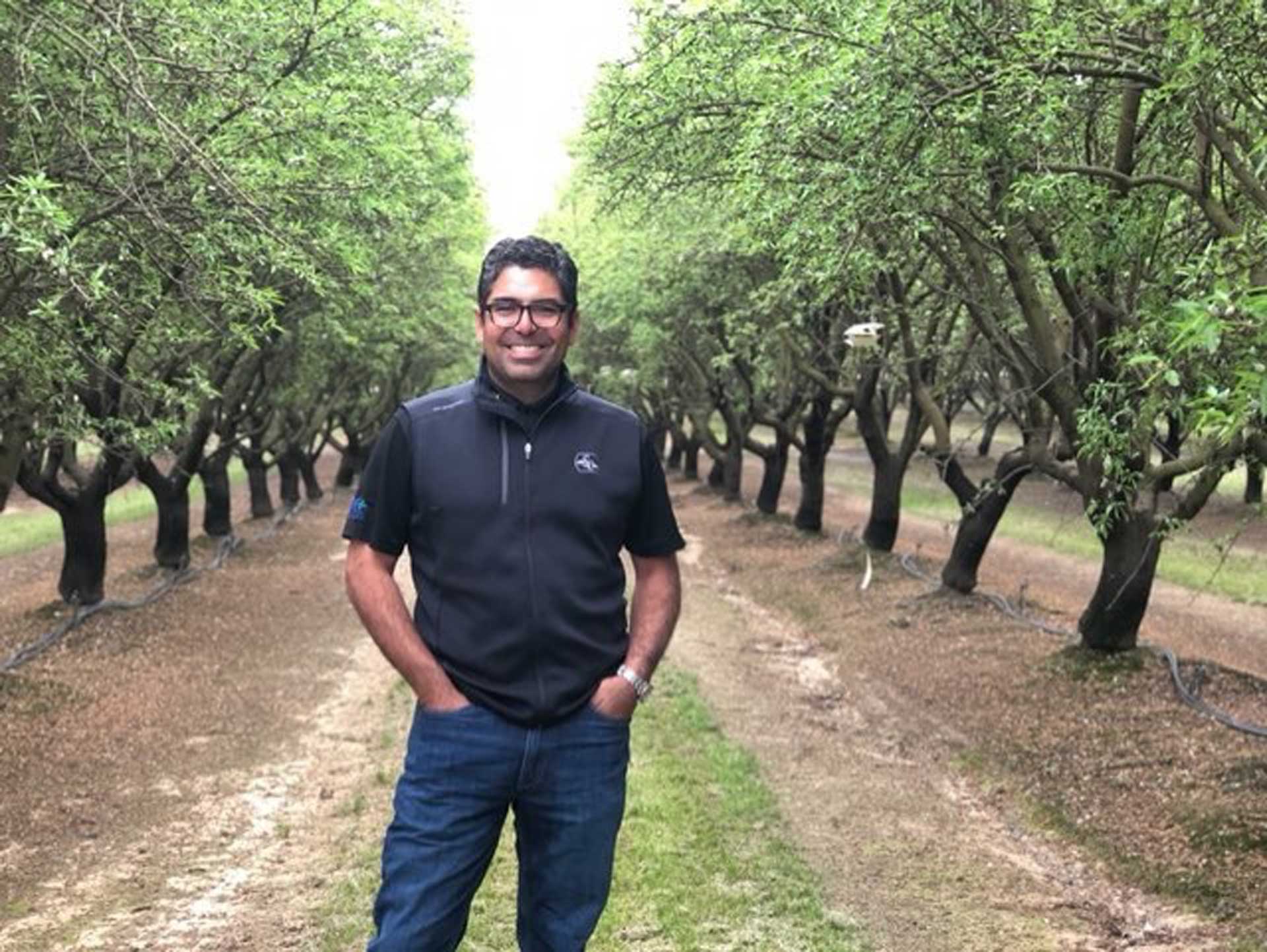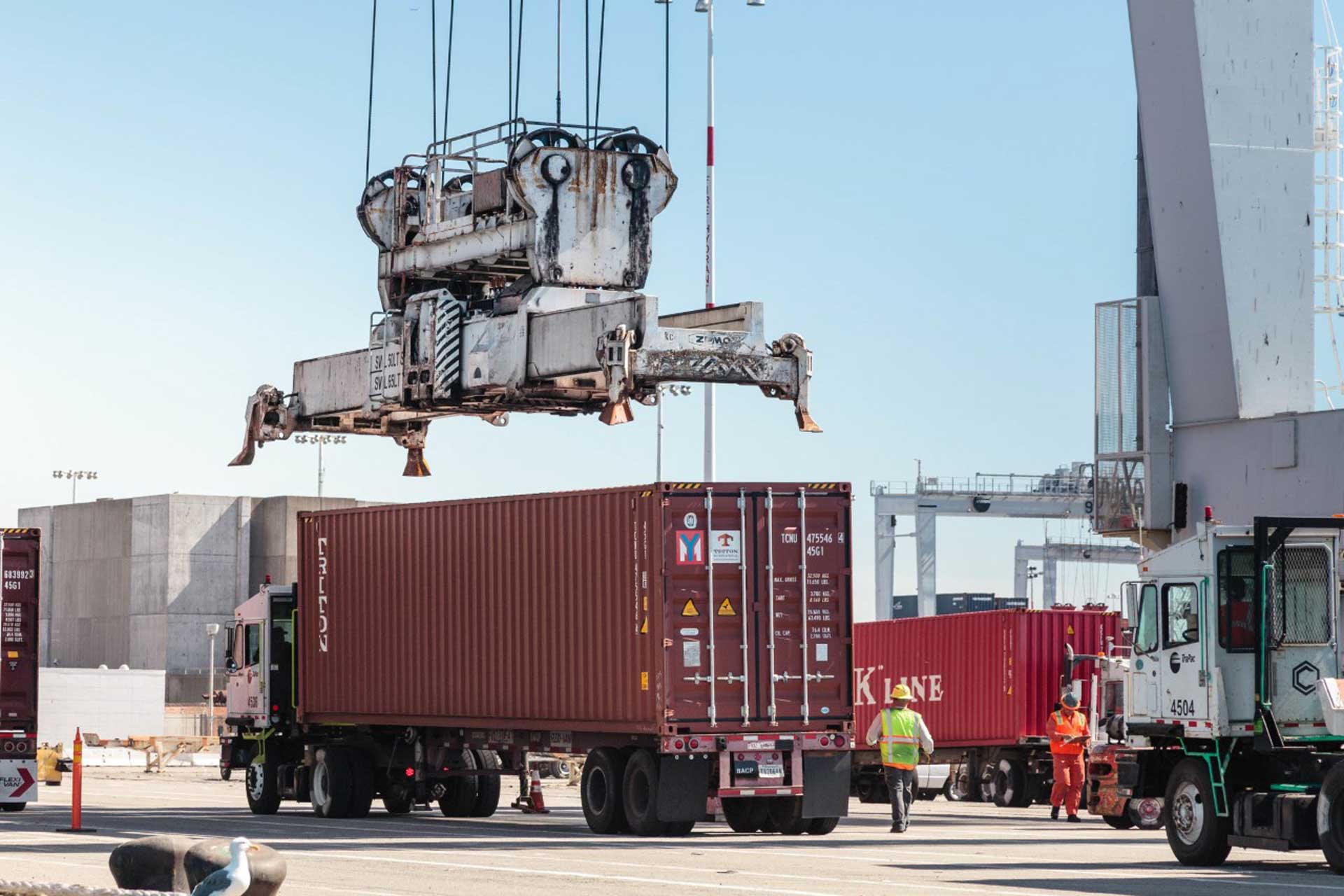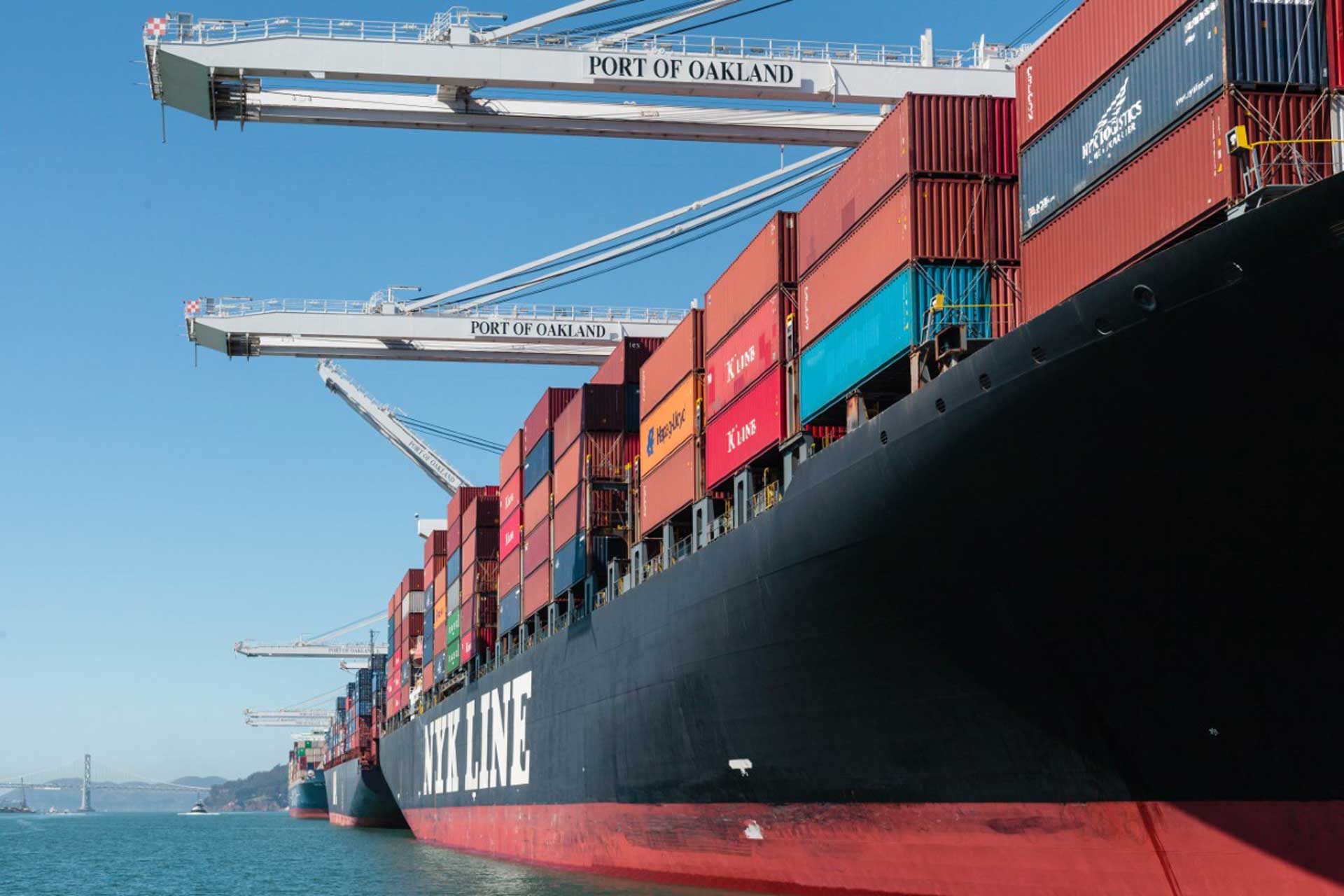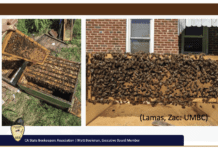
Two years into the supply chain crisis, Jonathan Hoff is tired of being nice.
“We need somebody who’s going to pound their fist on the table, tell the Federal Maritime Commission to get this done, and get it done now,” he says.
Hoff is CEO of Monte Vista Farming Company, an almond growing, processing and exporting business based in the small town of Denair in California’s San Joaquin Valley.
Since the pandemic exploded in 2020, extensive shipping delays and cancellations have created a logistics nightmare and cut sharply into Monte Vista’s export business. Moreover, Hoff believes returns to almond growers would be at least 25 cents a pound higher if the industry wasn’t dealing with these supply chain issues.
Hoff, who’s also chair of the Almond Board of California’s Technical and Regulatory Affairs Committee, discussed the situation with West Coast Nut magazine in early January.

Q. What aggravates you most about the supply chain crisis?
Since this situation began, it’s only gotten worse. Probably the most frustrating thing is that the solutions seem to be totally and completely out of our hands. What’s perhaps even more frustrating is that the folks who seemingly should have the solutions well within their grasp don’t. And when we go to them asking questions about how this can be resolved and how we can help, very rarely do they have a solid answer.
Q. Are you talking about the ocean carriers or about government?
I’m talking about the Federal Maritime Commission, which is a government agency, and about the folks at the Port of Oakland. They’re obviously our go-to people because the nature of the problem is so huge. That’s probably been one of the most frustrating parts about this.
Q. How has this situation affected Monte Vista’s business?
Obviously, it’s impacted cash flow and our cash conversion cycle. Not only does it take a long time to get shipments to leave here as an export-centric industry, and for us as an export-centric company, but we have this huge exposure to transportation risk. We’re about 85% export. It takes us three months just to get a shipment out. Shipments that were supposed to go out in October are just now going. Beyond that, it takes so much more time to get the goods to our customers. We end up with this huge cash-flow lag where if we sold something today, we’re probably going to get paid for it in June or July.
Q. Have you been able to quantify what this crisis has cost you?
In terms of the processing company, I would say it’s been probably a 10% reduction in normal profitability. Actually, it’s more than that because we’ve lost revenue. We also have a lot more goods sitting around here than we normally would, which means we have to rent storage space and buy additional bins. It’s a real challenge, and I can tell you the frustration that’s building within our logistics team is huge because they get no answers, no warning, no break. It’s a constant battle and constant struggle for them.
Q. How have these shipping delays affected your customers?
It’s created a tremendous amount of frustration on our customers’ side. We’ve missed a tremendous amount of seasonal consumption. In India, it’s around the October-to-December wedding season. In Europe, there’s a lot of consumption around the holiday season. In China, it’s around the Chinese New Year.
We have a certain window to get our shipments to those markets in time for them to be cleared through customs, distributed to manufacturers, manufactured, packaged and distributed out to retail. If you miss that window, there’s simply not going to be goods available for consumers to consume or gift-givers to give during those holiday seasons. We don’t get that demand back. That’s lost demand. It’s true demand destruction. It’s not as though, if our container arrives a month late, people are going to eat double the almonds they usually do. It’s just not the way it works. Given the fact that we’re dealing with two very large crops back-to-back and low prices to the farm (in some cases, lower than the cost of production), we can’t afford missing out on any of this demand.

Q. What happens to the almonds? Are they still sitting at the port?
Right now, they’re still here in Denair. We have shipments leaving, but let’s say in a normal month, during the peak shipping season, our company would ship between 5.5 and 7 million pounds in a month when we’re really cranking. Right now, because we can’t get vessel space or containers, and bookings are constantly being rolled or cancelled without notice, we might ship between 2.5 and 3.5 million pounds.
Q. Why isn’t the supply chain crisis getting resolved? What needs to happen?
Somebody has got to step up and lead the charge to fix this. That is the most pointed comment I made during the Almond Conference in December, when we had somebody from the Port of Oakland and somebody from the Federal Maritime Commission on the panel with me. Growers can’t bear this burden and this cost anymore. Somebody’s got to shine some light at the end of this tunnel. Seems to me the Federal Maritime Commission has the ability and authority to do that. I’m not a bureaucrat. I don’t know exactly what they can do. All I know is that it’s a U.S. citizen relying heavily on exports going out of the Port of Oakland. They seem like the logical party to fix this.
Q. What could really start turning this situation around?
Some huge penalties or sanctions levied against shipping lines calling on these ports. This may be too late, probably should have happened a long time ago, but I think any shipping line whose intention it is to bring goods here, discharge them and head back with empty containers is the genesis of this problem in a big way. Taking authority over our own ports and not allowing that to happen is probably the number-one way this could have been stopped.
Now that we find ourselves in the soup that we’re in, the problem is huge. Even doing that today, it would take several months for the global balance of the equipment and vessels to come back. Finding additional yard space at ports to store and stage empty and full containers to clear up some of the congestion would at least help.
If we were to pass a Build Back Better plan, let’s focus on a port infrastructure and automation. A major investment at ports and removal of some barriers would also help to make those ports more efficient. Let’s make these ports bigger, get larger ships in there. One of the reasons we’re having so many issues right now is because not only are the ports so backed up with full and empty containers, but these ports are inefficient.
Q. What’s your message to the powers that be?
We’re looking to someone, anyone for help; to put pressure on anyone, we need to put pressure on to end this situation. Farmers are not only what makes this country so awesome, but we’re a big part of the California landscape. California is a powerhouse of global production. We rely heavily on the Port of Oakland to ship goods to markets that really want the specialty crops that we’re creating. I just hope that somebody hears that, somebody who can do something about this problem, and we finally get some leadership out of someone to help change this.
That’s not to say that our industry groups haven’t been stepping up and leading the charge. They certainly have. But those folks they’ve been charging against, I want them to finally listen and do something. If I were standing in front of them, I would ask them to quit pointing fingers and get something done.
View Hoff with the Almond Conference panel, “Ag Export Delays: Any Light at the End of the Tunnel?” at almonds.com/about-us/programs-and-events/almond-conference/presentations.















